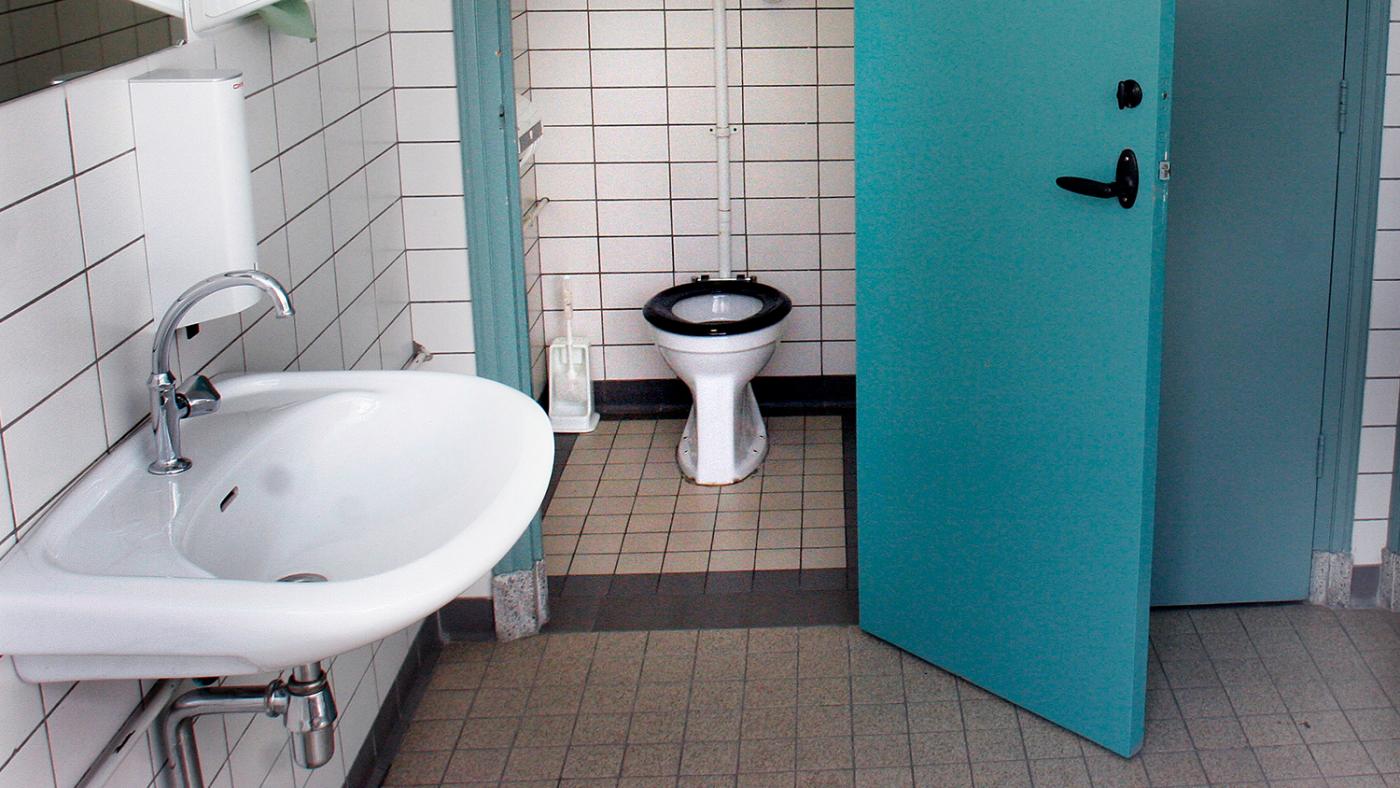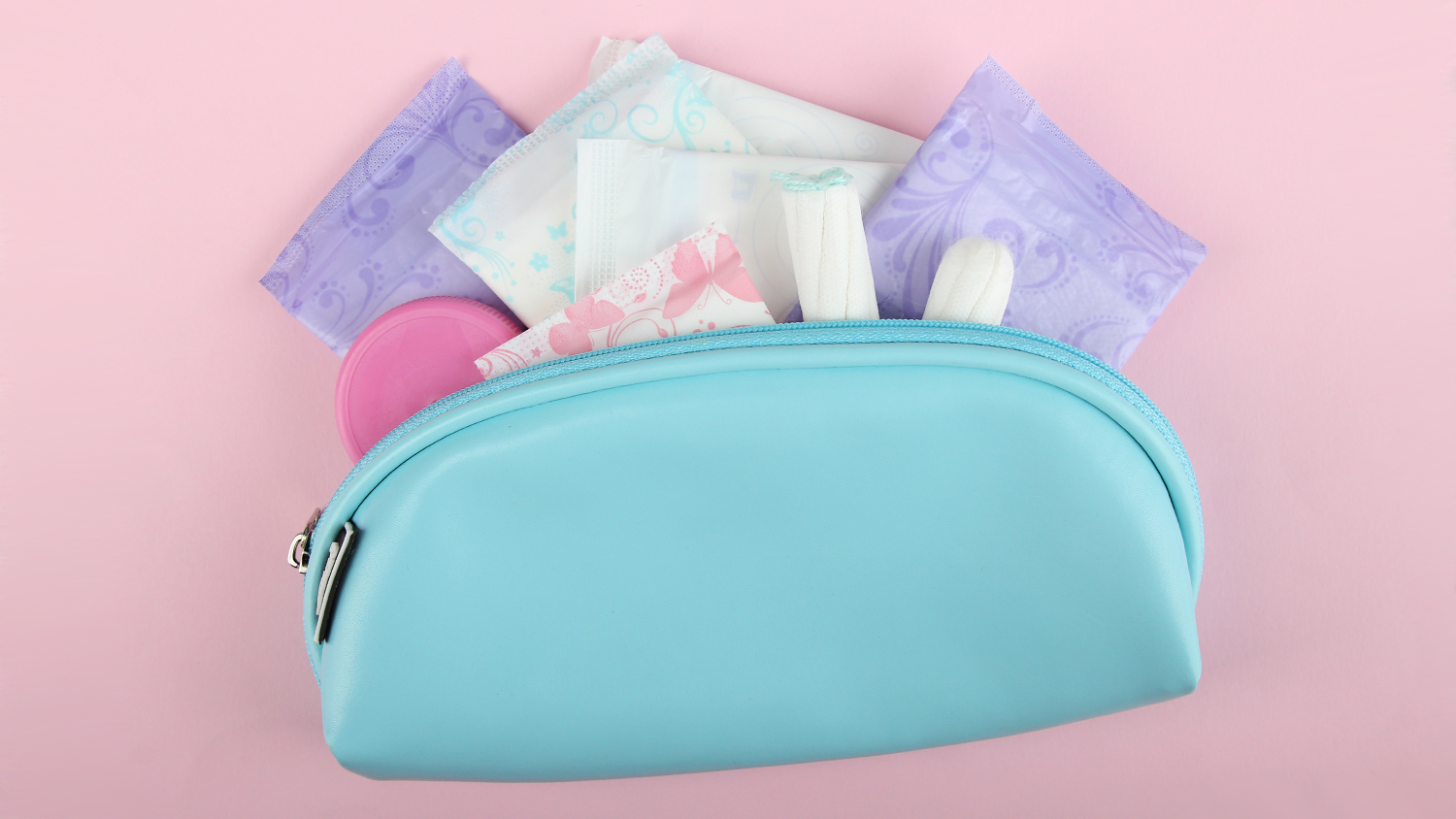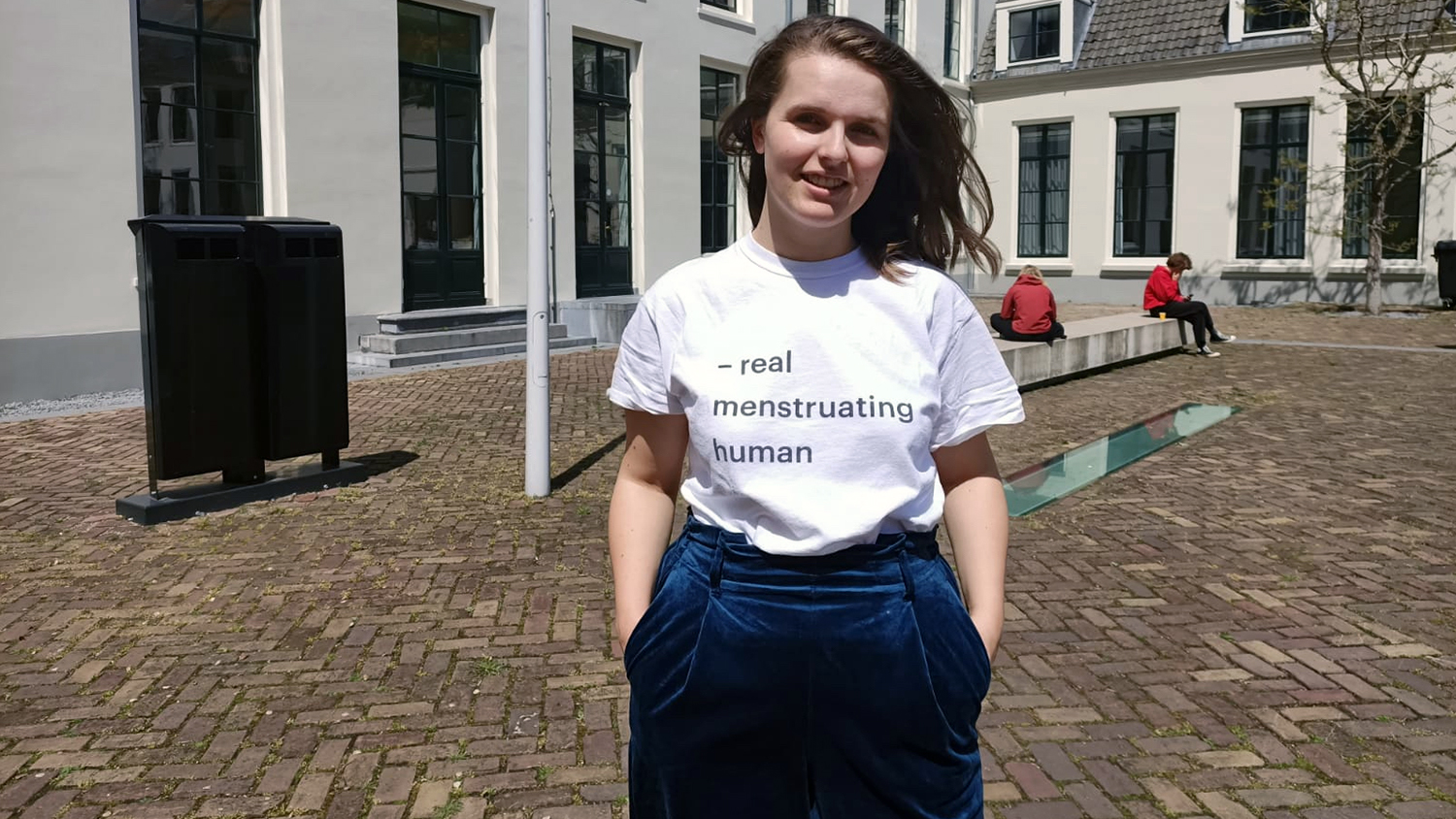University Council students want menstrual products in UU toilets

How do you deal with your period when you've got to go to university? Are you on the pill, so you always know exactly when your period will come and you make sure to have some tampons or sanitary pads in your bag. Or maybe you're the type of person who always keeps some tampons, pads and pain killers in a compartment of your purse. But what if you're not so well-prepared and you get surprised by your period? Do you stuff your underwear with toilet paper and ask a classmate or stranger for help? Do you even dare doing that? Perhaps you've considered going to the reception desk at the library, only to find out that their first aid kit doesn’t contain a single sanitary napkin. What do you do, then? Go home, losing your study spot or missing out your class? Or stay there, hoping that the toilet paper will suffice?
The practicalities surrounding menstruation certainly aren't a common choice of topic for a water cooler chat. Those who are ill-prepared for their period find themselves in a tricky situation if they don’t have any tampons or pads, regardless of whether they can or cannot afford these products. Research by Plan International shows that almost 9 percent of young women between 12 and 25 years of age in the Netherlands don't have enough money to buy pads or tampons. Nearly half of these women consider menstrual products too expensive. The student union at VU Amsterdam (SRVU) decided to do something about menstrual poverty. VU has been providing free mentrual products since February. As far as we know, they're the only university in the Netherlands doing so.

There is demand for menstrual products
The news about VU reached Nandika Mogha, who asked herself why UU isn't doing the same. Nandika is a student member of the University Council, as the party leader of Lijst Vuur, as well as a second-year student of Liberal Arts & Sciences at University College Utrecht. She decided to create a survey about the need for menstrual products among students and staff at UU.
By May 31st, 486 people had filled in the survey, which is still open to responses. The results show that 95 percent of students and staff at the UU feel that the university should provide free menstrual products. Of these, 83 percent think the products should be free. Using these preliminary results, Nandika wrote a memo on behalf of Lijst Vuur for the Executive Board, which will be discussed in the University Council committee for Finances, Staff, and IT (FPI) on June 14.
The students want the university to make menstrual products available in all UU bathrooms – meaning gender-neutral, women’s, and men’s rooms. "It’s the same as providing soap or toilet paper”, says Nandika. “No one’s against providing menstrual products; the real question is whether or not they should be free.” Nandika herself feels that it’s fair to pay a small amount for these products. “That would prevent us from abusing the service”, she says.

If men were to menstruate…
According to Nandika, menstrual products aren’t provided in the university buildings because the university is not paying enough attention to the issue. “No one talks about it, so people don’t think about facilities like this”, she says. Talking about menstruation is rather taboo. “I don’t think anyone’s against it, and people are willing, but it’s time to take action now.”
The patriarchy is part of the reason, too, adds Nandika. “I truly think that if men were to menstruate – so, if this was a men’s issue – sanitary napkins wouldn’t be a luxury product. They’d be available everywhere. There’d be menstrual leave, etcetera. It’s odd that menstrual products are seen as luxury products in the Netherlands, so you have to pay 21 percent tax on them.” Nandika thinks that UU could take the lead by showing that menstrual products are not a luxury but commodities, simply by providing them.
Bathroom design could be more menstruation-friendly
The discussion about menstruation goes beyond just providing tampons or pads. The facilities in general aren’t designed for people who menstruate. At home, nearly everyone has a small washbasin right next to the toilet. But that's rarely the case at universities. DUB's editor Gwenda Knobel recollects: “Before the renovation of the restrooms in the Administration building, we had just one toilet with a washbasin and one without, but the washbasins disappeared after the renovation. Who came up with that? Probably someone who never gets their hands dirty.”
Magali, a Master’s student of Pharmacy, agrees that UU toilets could be much better equipped. She uses a menstrual cup, which requires a high level of hygiene and a washbasin for the clean-up. “There aren’t many toilets where you can comfortably rinse your menstrual cup. You always have to touch the door between washing your hands and using your cup. And sometimes, your day is so full that you barely have time to do it, because the toilets are always so crowded during breaks.”
It's also a matter of inclusivity. A lot of people overlook the fact that it’s not just women who menstruate. Transgender men do, too. At the moment, men’s toilets at UU don’t have a rubbish bin in the stalls.
Menstruation has to stop being taboo
Magali hopes menstruation will become less taboo and everyone who menstruates at UU gets access to the products and facilities they need. Due to the coronavirus, most UUers are working and studying from home, "which comes in handy when you’re on your period,” Magali says. “You can attend your lecture with a hot water bottle on your belly or relax for a little bit with a cup of tea and some chocolate. I also prefer to clean my menstrual cup in my own bathroom.”
Maybe the pandemic is opening more people’s eyes to the differences between home and university in terms of comfort, prompting them to wonder why they’re supposed to accept less comfort elsewhere. “I think UU could facilitate this. They provide students with student psychologists and such, so I think free menstrual products fit that list too. Toilet paper is free, so tampons and sanitary napkins should be, too. The use is different, but they’re both basic needs.” Magali understands some students might start stealing menstrual products, but on the other hand, she thinks: “Is it really stealing if people take it because they can’t afford it? Isn’t that what it’s for?”
University board waits for discussion's conclusions
The discussion surrounding menstruation at the university has truly begun. In anticipation of the meeting about the student members’ memo in the FPI committee, the Executive Board issued a general statement:
“We can imagine that the needs surrounding the use of the toilets have changed, for instance because students are using menstrual cups.There’s also more and more attention being paid to how toilets can be gender-friendly, for instance by providing rubbish bins in men’s toilets as well. Through University Council member Nandika Mogha’s survey, we can see what the needs are in this regard among students and staff. We’ll wait for the definitive results of the conversation and then we will then see whether it’s necessary to change things at the university and, if so, how we can meet those needs.”